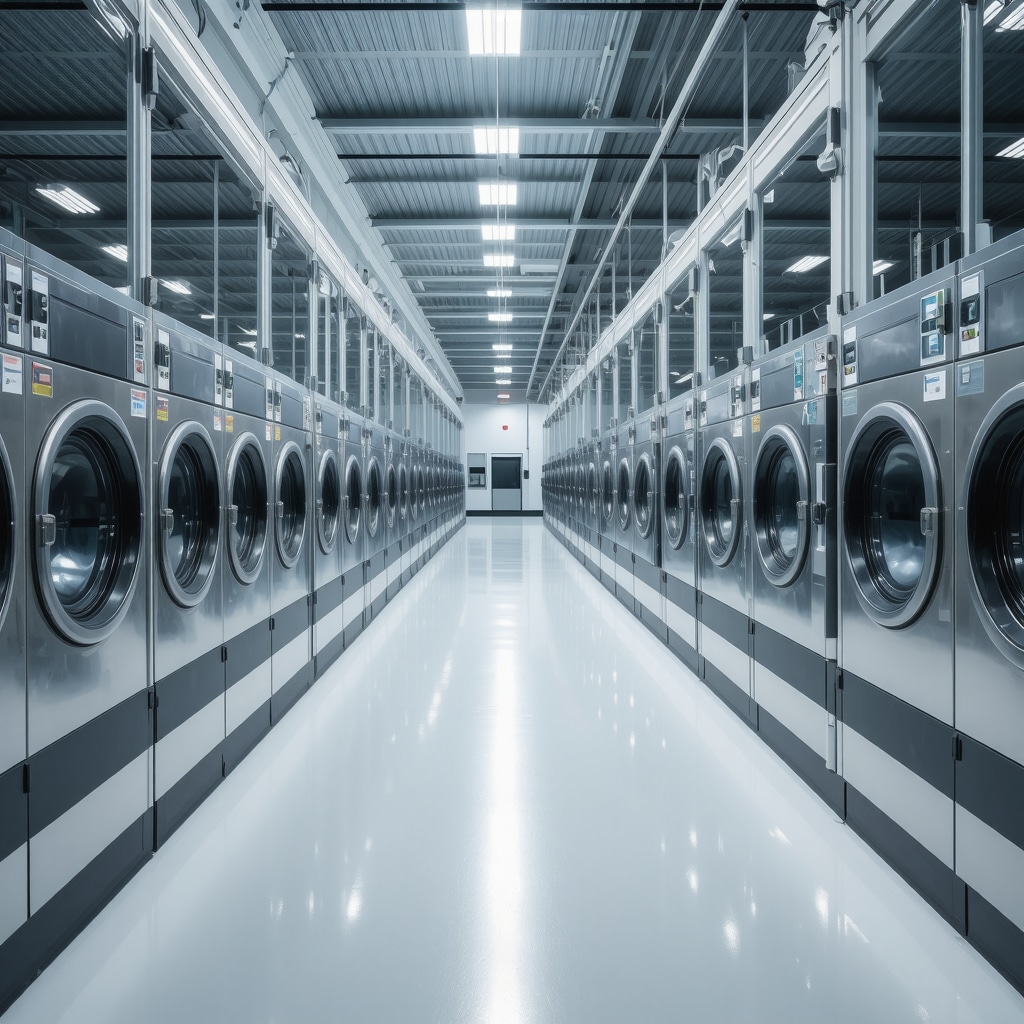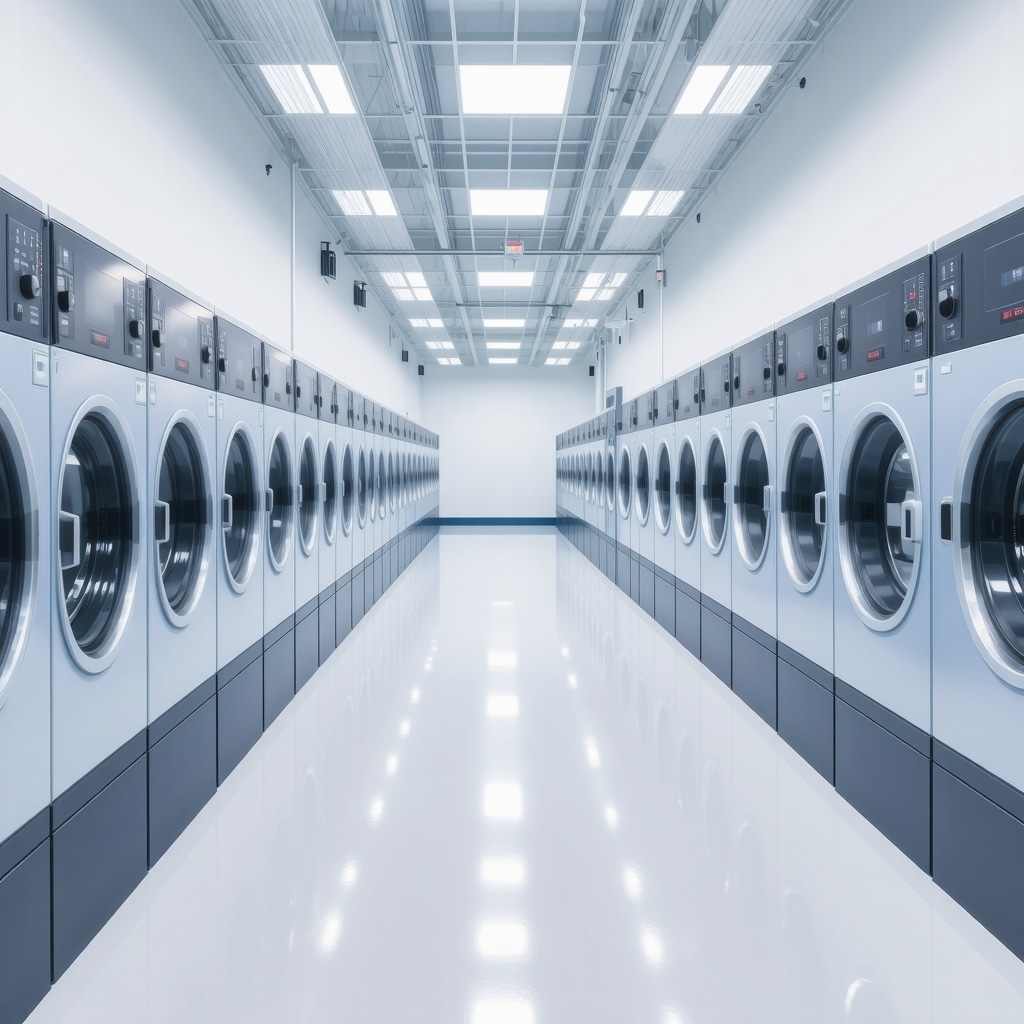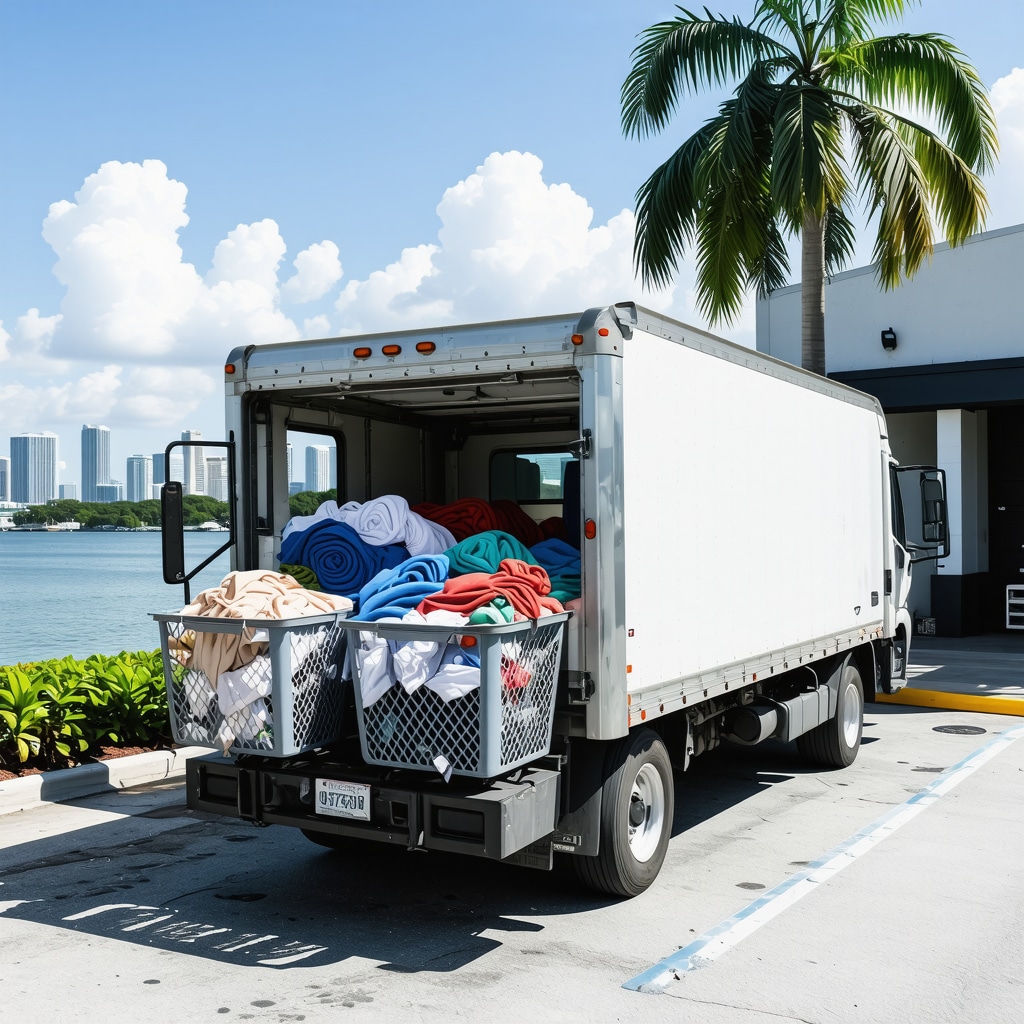Unlocking the Strategic Value of Bulk Commercial Laundry Pickup Services in Tampa Bay
In the competitive landscape of Tampa Bay’s hospitality, healthcare, and hospitality sectors, the demand for reliable and scalable laundry solutions has escalated. As an industry expert, I recognize that adopting bulk commercial laundry pickup services is not merely a logistical convenience but a strategic necessity for enterprises handling large volumes of linens, uniforms, and hospitality textiles.
The Complexity of Managing Large-Scale Laundry Operations
Managing expansive laundry loads involves intricate challenges: maintaining hygiene standards, optimizing turnaround times, and controlling operational costs. Tampa Bay businesses that leverage specialized laundry pickup for large orders gain a competitive edge by ensuring consistent quality and compliance with health regulations, as outlined in industry white papers such as those by the American Journal of Infection Control.
How Advanced Pickup Services Elevate Business Efficiency
Modern bulk laundry pickup providers in Tampa Bay utilize technology-driven scheduling systems, contactless procedures, and eco-friendly detergents to streamline operations. This integration reduces downtime, minimizes cross-contamination risks, and aligns with sustainable practices—an increasingly critical factor in corporate social responsibility. For instance, eco-friendly pickup solutions are gaining traction among environmentally conscious clients.
Addressing the Nuances of Large-Order Laundry Logistics
One often overlooked aspect is the logistics complexity—ranging from scheduling pickups during peak hours to managing special care for delicate textiles. Expert operators employ tailored solutions, such as dedicated routes and specialized handling, to ensure quality preservation. This precision is vital for sectors like healthcare, where proper sanitation and fabric care directly impact patient safety.
What are the most effective strategies to ensure sanitation and safety in bulk laundry pickup services?
Implementing rigorous sanitation protocols, staff training, and contactless procedures are fundamental. Regular audits and adherence to CDC guidelines, as discussed in recent best practices articles, further reinforce trustworthiness and compliance.
For businesses seeking comprehensive insights, exploring pricing guides and service options can facilitate informed decision-making. Additionally, sharing your professional experiences or unique challenges can help refine service delivery and industry standards.
In conclusion, embracing advanced bulk laundry pickup services in Tampa Bay is a strategic move that enhances operational efficiency, ensures hygiene compliance, and aligns with sustainable practices. As the industry evolves, continuous innovation and adherence to expert guidelines will be key to maintaining competitive advantage.
Revolutionizing Laundry Logistics: Are We Leveraging Technology to Its Full Potential?
In the rapidly evolving landscape of commercial laundry services, Tampa Bay businesses are increasingly turning to innovative solutions that harness technology to optimize operations. Advanced scheduling platforms, real-time tracking, and AI-driven analytics are transforming traditional laundry pickup models, enabling companies to predict demand patterns, allocate resources efficiently, and reduce environmental impact. This shift not only boosts operational efficiency but also enhances customer satisfaction by providing transparency and reliability. For example, integrating these technologies with app-based scheduling systems allows for seamless, contactless pickups that meet modern safety standards.
Are We Challenging Assumptions About Sustainability in Bulk Laundry Services?
Many assume that bulk laundry processes inherently consume excessive resources. However, industry leaders are pioneering sustainable practices that challenge this notion. Utilizing eco-friendly detergents, optimizing routes to minimize fuel consumption, and implementing water recycling systems are just some strategies that reduce environmental footprints. According to a report by the Green Clean Initiative, these measures significantly cut emissions and water usage without compromising hygiene standards. Embracing such innovations positions Tampa Bay businesses as leaders in environmental responsibility, appealing to eco-conscious clients and stakeholders.

What are the practical steps businesses can take today to embed sustainability into their bulk laundry operations?
Implementing sustainable practices begins with assessing current workflows and identifying areas for improvement, such as switching to biodegradable detergents or investing in energy-efficient machinery. Partnering with a reliable laundry pickup provider that prioritizes eco-friendly solutions can further streamline this process. Moreover, educating staff and clients about the benefits and practices of sustainability fosters a culture of responsibility and continuous improvement. For more insights on eco-friendly laundry strategies, visit Tampa’s green laundry tips.
How Can Industry Experts Develop Frameworks to Ensure Consistent Quality and Safety?
Creating standardized protocols that encompass sanitation, handling, and transportation ensures that bulk laundry services consistently meet safety standards. Experts recommend adopting comprehensive checklists, regular training sessions, and certification programs aligned with CDC and OSHA guidelines. These frameworks serve as benchmarks for quality assurance, reduce risks of contamination, and build client trust. Incorporating feedback mechanisms and continuous monitoring further refines processes, ensuring excellence over time. For detailed guidance on safety protocols, explore best practices in laundry safety.”},
Innovative Technologies Reshaping Bulk Laundry Management in Tampa Bay
As Tampa Bay’s commercial laundry landscape evolves, the integration of cutting-edge technologies becomes indispensable. Beyond traditional scheduling and routing, AI-driven demand forecasting and IoT-enabled equipment monitoring are transforming operational paradigms. For instance, predictive analytics allow laundry providers to anticipate peak loads, optimizing resource allocation and reducing idle times. Simultaneously, IoT sensors embedded in machinery facilitate real-time diagnostics, enabling proactive maintenance that minimizes downtime. According to a recent study by the IEEE Transactions on Industrial Informatics, such technological innovations significantly enhance efficiency and sustainability in large-scale laundry operations. This convergence of digital tools not only elevates service reliability but also positions Tampa Bay businesses at the forefront of industry modernization.
Nuanced Approaches to Sustainability in Bulk Laundry Services
Challenging the misconception that bulk laundry inherently consumes excessive resources, industry leaders are pioneering nuanced, sustainable practices. These include the deployment of advanced water recycling systems that reuse rinse water, significantly curbing water consumption. Additionally, eco-conscious detergents formulated with biodegradable ingredients and reduced chemical loads are gaining prominence. Route optimization algorithms, powered by machine learning, contribute to lower fuel emissions by minimizing travel distances. The GreenBiz article highlights how such integrated strategies can cut environmental impact without compromising hygiene standards. For Tampa Bay businesses, embracing these innovations not only aligns with global sustainability goals but also enhances brand reputation among eco-conscious clients.

How can companies effectively measure and report their sustainability impact in bulk laundry operations?
Implementing comprehensive metrics, such as water and energy savings, chemical reduction, and carbon footprint, is essential. Utilizing automated data collection through IoT devices and integrating these insights into sustainability reports ensures transparency and continuous improvement. Industry standards like the GRI (Global Reporting Initiative) guidelines offer frameworks for accurate reporting, fostering stakeholder trust and regulatory compliance. For actionable insights, consulting specialized sustainability analytics firms can help tailor measurement strategies to specific operational contexts.
Developing Rigorous Quality and Safety Frameworks for Large-Scale Laundry
Establishing a robust quality assurance framework requires meticulous standardization of protocols across all operational facets. This includes detailed sanitation procedures aligned with CDC and OSHA guidelines, regular staff training, and certification programs to ensure adherence. Incorporating technology such as RFID tags on textiles enables precise tracking and accountability, reducing cross-contamination risks. Moreover, implementing continuous monitoring systems that flag deviations from established standards facilitates prompt corrective actions. The development of such comprehensive frameworks ensures consistent safety and quality, fostering industry trust and elevating service standards. For detailed guidance, refer to the CDC’s Infection Control Guidelines for Laundry Services.
Harnessing Cutting-Edge Technologies to Revolutionize Laundry Logistics in Tampa Bay
The future of bulk commercial laundry pickup services hinges on the integration of sophisticated digital solutions. Artificial intelligence (AI), machine learning (ML), and IoT devices are no longer optional but essential tools for industry leaders aiming for operational excellence. For example, predictive analytics based on historical data can anticipate demand surges during peak seasons, enabling more precise resource planning and reducing waste. Simultaneously, IoT sensors embedded in laundry equipment facilitate real-time diagnostics, allowing proactive maintenance that minimizes downtime and ensures continuous service delivery. According to a comprehensive study published in the IEEE Transactions on Industrial Informatics, the adoption of such technologies significantly enhances efficiency, sustainability, and client satisfaction in large-scale laundry operations.
Innovative Water Management and Chemical Optimization for Sustainability
Beyond automation, sustainability in bulk laundry services is being redefined through innovative water management and chemical usage strategies. Advanced water recycling systems capture rinse water for reuse, drastically decreasing freshwater consumption. Eco-friendly detergents with biodegradable components are now standard, reducing chemical loads discharged into local water systems. Route optimization algorithms, powered by machine learning, further contribute to sustainability by minimizing fuel consumption and emissions. As highlighted by the GreenBiz report, these integrated practices not only lower environmental impact but also resonate strongly with eco-conscious clients seeking responsible service providers. Implementing these strategies requires a thorough assessment of current workflows and strategic investments in advanced infrastructure, but the long-term benefits justify the effort.
What are the most effective metrics for measuring and communicating sustainability achievements in large-scale laundry operations?
Key performance indicators (KPIs) such as water and energy savings, reduction in chemical use, and carbon footprint are fundamental. Leveraging IoT-enabled data collection, companies can generate precise sustainability reports, fostering transparency and stakeholder confidence. Adopting frameworks like the Global Reporting Initiative (GRI) standards ensures comprehensive and credible reporting. To deepen your understanding, consider consulting with sustainability analytics firms who can tailor measurement strategies to your specific operational context and help communicate your achievements effectively to clients and regulators.
Developing Robust Quality and Safety Frameworks for Large-Scale Laundry Services
Establishing comprehensive quality and safety frameworks is crucial for maintaining industry standards and client trust. Implementing detailed sanitation protocols aligned with CDC and OSHA guidelines, complemented by staff training and certification programs, creates a culture of safety. RFID tagging of textiles enhances traceability, reducing cross-contamination and facilitating accountability. Continuous monitoring systems, equipped with AI-driven alert mechanisms, can detect deviations in sanitation standards, enabling immediate corrective actions. For authoritative guidance, refer to the CDC’s Infection Control Guidelines for Laundry Services. Developing such frameworks ensures consistent quality, safety, and compliance, positioning your enterprise as an industry leader committed to excellence.
Expert Insights & Advanced Considerations
1. Leveraging Data Analytics for Demand Forecasting
Industry leaders emphasize the importance of integrating AI-driven analytics to accurately predict demand patterns, enabling proactive resource allocation and reducing operational costs in Tampa Bay’s competitive laundry sector.
2. Implementing Sustainable Water Recycling Technologies
Advanced water recycling systems are transforming sustainability efforts, allowing businesses to significantly cut water usage without compromising hygiene standards, aligning with global environmental goals.
3. Developing Industry-Wide Safety Protocol Frameworks
Standardized safety protocols, regularly updated and rigorously enforced, ensure consistent quality and safety in bulk laundry operations, fostering trust and compliance across Tampa Bay’s varied sectors.
4. Embracing IoT for Real-Time Equipment Monitoring
IoT sensors embedded in machinery enable real-time diagnostics, facilitating predictive maintenance that minimizes downtime and enhances service reliability in large-scale laundry facilities.
5. Enhancing Customer Transparency with App-Based Scheduling
Adopting user-friendly, app-based scheduling platforms provides clients with transparent, contactless service options, boosting satisfaction and operational efficiency amidst modern safety standards.
Curated Expert Resources
- American Journal of Infection Control: Offers in-depth research on hygiene standards and contamination prevention in laundry processes, vital for maintaining safety compliance.
- GreenBiz: Provides insights into sustainable practices and innovative water and energy management strategies essential for eco-conscious business operations.
- IEEE Transactions on Industrial Informatics: Features cutting-edge studies on IoT and AI applications in industrial settings, crucial for modernizing laundry logistics.
- CDC Infection Control Guidelines: Serves as the authoritative resource for establishing and updating safety protocols aligned with health standards.
- Global Reporting Initiative (GRI): Guides comprehensive sustainability reporting, helping businesses communicate environmental impact transparently.
Final Expert Perspective
In the realm of bulk commercial laundry pickup services, Tampa Bay’s forward-thinking enterprises are harnessing data analytics, sustainable innovations, and IoT technologies to redefine operational excellence. By adopting these advanced strategies, businesses can achieve not only heightened efficiency and safety but also strengthen their market reputation through sustainability and transparency. As industry experts, I invite you to engage with these insights, integrate emerging technologies, and contribute to setting new standards for excellence in large-scale laundry management. For ongoing updates and expert guidance, explore our privacy policy and stay connected with industry advancements.

